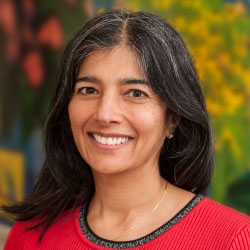Acute Kidney Injury Clinic
Contact the Acute Kidney Injury Clinic
What is the Acute Kidney Injury Clinic?
Seattle Children’s Acute Kidney Injury Clinic gives follow-up care to patients who have had an episode of acute kidney injury (AKI) while in the hospital. They are at risk for high blood pressure (hypertension), extra protein in their urine (proteinuria) and chronic kidney disease (CKD).
Our goal is to prevent chronic kidney disease or slow its development. CKD can cause permanent damage to your child’s kidneys. Kidneys are the organs that filter waste out of the blood and make pee (urine).
We check all patients before they go home from the hospital. We can provide follow-up care to children who need it.
What is acute kidney injury?
“Acute kidney injury” is a sudden change in kidney function. The kidneys can’t clean the blood or remove extra fluid as well as normal. Over time, this can lead to a buildup of waste products and fluid in the body.
The causes of acute kidney injury include certain medications, lower blood flow to the kidneys, infections, very high blood pressure and liver disorders.
Some conditions increase the risk of acute kidney injury. Children are at higher risk if they have:
- Been treated for cancer, infections or heart problems
- Been in the Neonatal Intensive Care Unit (NICU) or the Pediatric Intensive Care Unit (PICU)
- Had an operation
- Needed kidney dialysis (a way of cleaning your blood when your kidneys can’t)
How will the Acute Kidney Injury Clinic help my child?
If your child had an acute kidney injury while in the hospital, regular follow-up care can help prevent CKD or slow its development.
Ongoing (chronic) kidney disease can cause permanent damage to your child’s kidneys. Damaged kidneys are less able to clean the blood. This can lead to a buildup of waste and fluid in the body.
In caring for your child, we combine our deep knowledge of growing children with the latest research on kidney health and disease.
How does Seattle Children’s treat children with acute kidney injury?
We’ll check your child’s blood and pee (urine) regularly to see how well their kidneys are working. We will also check their blood pressure. These tests give us early notice if your child’s kidneys are not working well.
It’s best for children who have had AKI to be checked 1 to 3 months after going home from the hospital. After that, we check children once each year. How long we monitor your child depends on their situation.
To get more information about your child’s kidneys, we may take ultrasounds. An ultrasound uses sound waves to view and make pictures of your child’s kidneys.
We’ll also help you and your child understand how to keep their kidneys healthy. For example, they may need to avoid certain medicines or herbs or use less salt.
How can I get an appointment?
If your child had an acute kidney injury while in the hospital, you will receive a letter and follow-up phone call after they go home.
Please schedule an appointment by calling 206-987-2524, option 2.
It’s best for children to be checked 1 to 3 months after going home from the hospital. In the meantime, if you have any questions about the Acute Kidney Injury Clinic, please call us.
Before your clinic visit, we’ll let you know how to prepare. For example, we may ask you to schedule lab work or bring a urine sample.
Telemedicine at Seattle Children’s
Your child’s first appointment in our clinic will be in person and take about 90 minutes. Later visits may be offered via telehealth (virtual). Learn more about telemedicine at Seattle Children’s.
Who’s on the team?
Seattle Children’s Acute Kidney Injury Clinic team includes doctors, nurses, family service coordinators and medical assistants. We work together and with you to give your child the best treatment.
Providers in the Acute Kidney Injury Clinic include:
Teams
Resources
You and your family may find helpful information on these links and patient handouts.
- Acute Kidney Injury (PDF) (Arabic) (Spanish)
- Kidney Disease in Children – National Institutes of Health
Paying for Care
Learn about paying for care at Seattle Children’s, including insurance coverage, billing and financial assistance.
Access Additional Resources
Get resources for patients and families, including information on food, housing, transportation, financial assistance, mental health and more.


